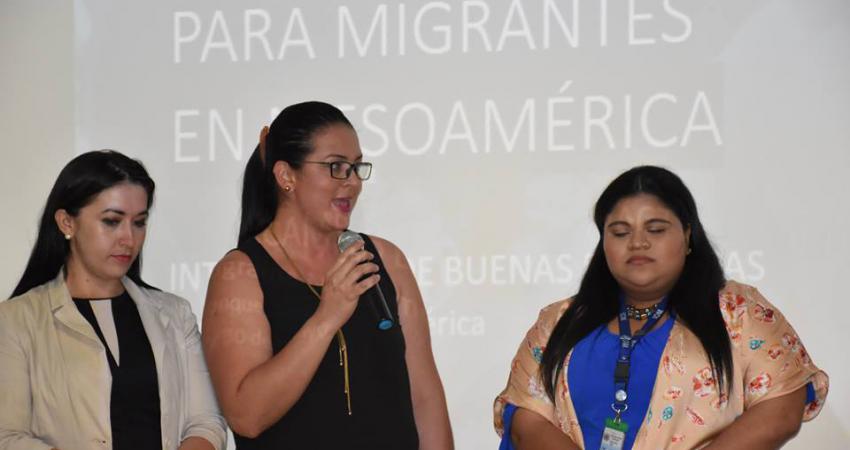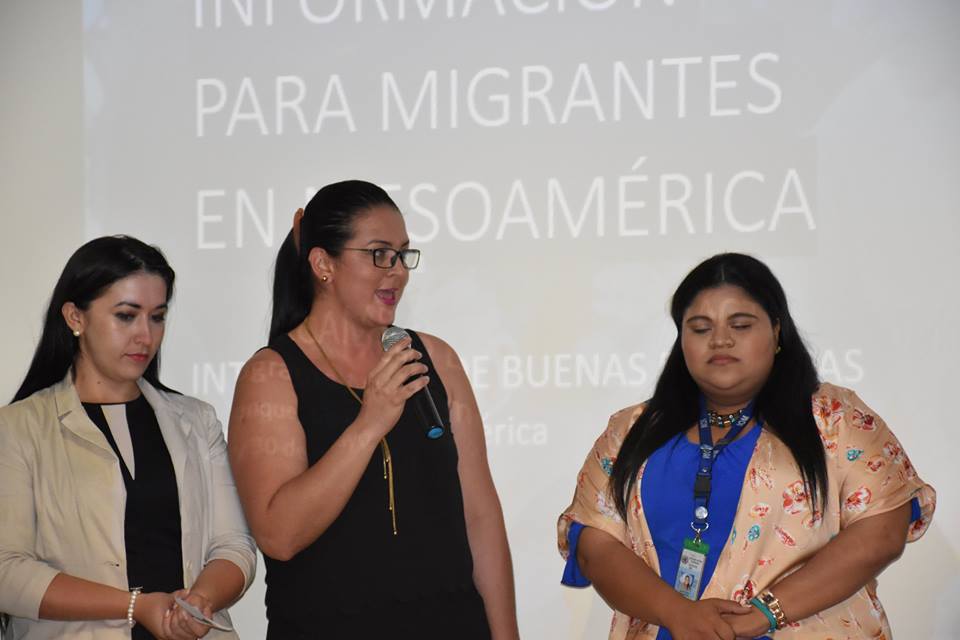Migration Information Centers in Mesoamerica Share Experiences and Good Practices in Regional Exchange


Mexico. Maria* is a young Honduran woman who left her country with her two children, with no plans, no money, and no clear path, but determined to take a train north. After several days of walking and enduring the poor typical conditions along irregular migration routes in Central America, Maria arrived in Palenque, in the Mexican state of Chiapas, and visited the Migration Information Center there, where she received information about the risks of irregular migration, human rights protection, and options for regularization, which changed her mind.
Cases like hers highlight the importance of migration information resources like the information hubs or centers and demonstrate the need for meetings between their representatives in order to exchange best practices, like the one held on May 29 and 30 in Palenque, Mexico.
The main objective of this meeting was to promote regional dialogue and exchange, strengthen the informational work being carried out, and find better solutions to the need for information of migrants in the region.
Participants included other United Nations agencies, like UNHCR, government institutions, and civil society organizations that work in close coordination with the information hubs in the region.
The migration information centers are a tool developed by IOM at the global level for the purpose of responding to the needs of migrants. This concept has been applied in diverse ways depending on the country and the population being served. In Central America and Mexico, IOM has promoted this initiative through different programs, including the Mesoamerica Program, in order for migrants to receive clear, reliable and accurate information about existing ways for them to receive assistance, as well as safe and regular migration options. There are currently more than 20 information hubs for migrants located in 8 countries in the Mesoamerica region, Mexico, Belize, Guatemala, Honduras, El Salvador, Nicaragua, Costa Rica, and Panama.
From October 2016 to March 2018, the staff of these hubs have directly assisted more than 3,000 vulnerable migrants and, through informational activities in communities, have brought information about mitigating the risks associated with irregular migration to more than 7,500 people, many of them potential migrants.
“These information hubs are one of IOM’s methods of cooperation by which it contributes to better management of migration and promotes the protection of migrants. They offer clear, reliable, and effective information so, that migrants can access to different services offered by governmental and civil society organizations,” explains Marcelo Pisani, Regional Director of IOM for North America, Central America, and the Caribbean.
"The importance of the hubs stems from the direct contact with migrants; the information provided is meant to facilitate regular migration and the information we collect is essential for identifying and monitoring the regional flow of migrants", explained Maybell Aizpurúa, responsible for the Information Hub in Paso Canoas, Panama.
"It is important to have these meetings in order to coordinate within the whole region; if we have a regional network, we can track migration routes and provide more immediate responses", said Noelia Giron, Manager of Social Development in the municipality of El Progreso, Honduras.
This meeting was organized by the Regional Mesoamerica Program, which seeks to contribute to the development and implementation of strategies for regular, orderly, and safe migration, ensuring adequate protection for migrants. This Program is funded by the Bureau of Population, Refugees, and Migration (PRM) of the Department of State of the United States of America.
*Name changed to protect her identity.
